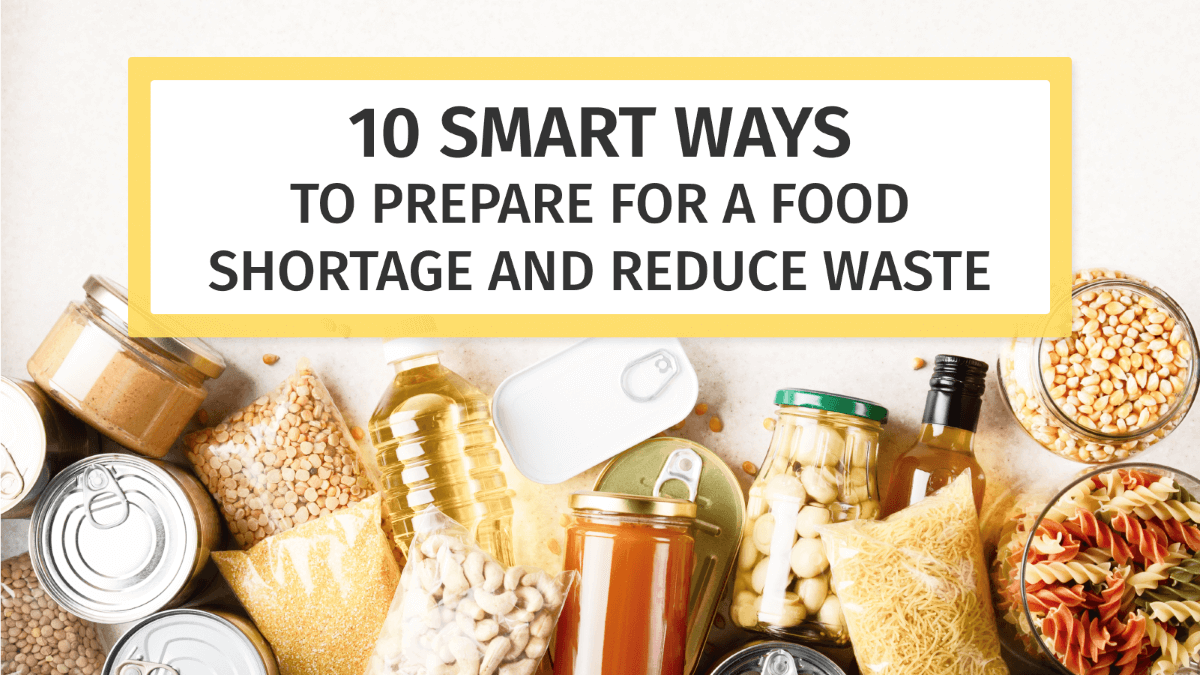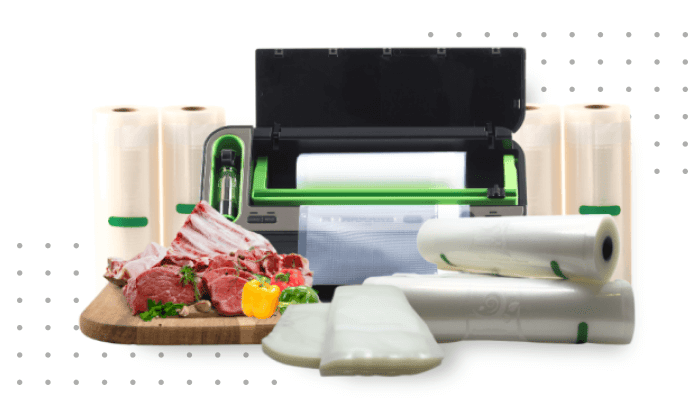Food shortages are inevitable given the fluctuations in the demand and supply needs of people coupled with our capacity to grow food items.
When it happens, food is scarce and prices are jacked up.
Due to recent events, there has been a significant increase in food prices that has caused much alarm. As the situation continues to persist, adopting strategies to prepare for a food shortage is becoming more of a necessity each day.
Food items are becoming more and more valuable with not much room for them to go to waste.
Despite such, it is important to note that these situations are still very manageable, especially if you start early on.
Here are ten productive ways to prepare for a food shortage and reduce food waste.
#1. Shop Wisely
Panic causes people to buy impulsively.
The solution?
Before going to the grocery store, make a detailed list of everything you need in the right amounts for your food supply. This applies to both perishable and nonperishable foods for both consumption and storage.
Buy perishable foods in bulk with long-term expiration dates, and don't forget to make a limited purchase of nonperishable food to avoid food wastage.
In case you find good deals for nonperishable goods, make sure that you're able to preserve them for long-term storage. (See point number 4!)
#2. Stock Up On Canned Food
Canned foods have a long shelf life.
They come in really handy during a food crisis.
These non-perishable food items include candy bars, canned vegetable products, dried fruits, canned soups and nuts, noodles, pasta, and frozen foods.
When purchasing these foods, it's essential to ensure that their expiration dates are far-out in order for you to be able to maximize their shelf-life.
#3. Cultivate Your Own Fresh Produce
Being able to grow your own garden of fruits and vegetables will always be a plus during food crisis situations.
Nothing has ever sounded better than a beautiful garden of your own where fresh foods are grown, especially during a food shortage.
Those who dwell in suburban or rural areas are likely to have a backyard where they can cultivate their own soil and build nursery beds.
Urban dwellers, on the other hand, may want to become a part of a community garden where everyone helps out with growing the produce and upkeep of the area while splitting the harvest once ready.
#4. Use Different Methods of Preservation and Storage
There are different ways to preserve, secure, and store food, both long-term and short-term.
The more commonly used methods are vacuum sealing, freeze drying, and dehydration. Through these methods, and a couple more others, food shortages can easily be survived.
For example, when kept in a good environment, freeze-dried meat can remain fresh for up to 15 years!
While for most fruits and vegetables, the best way to store them is by vacuum sealing them inside food vacuum seal bags.
And when bottled in an airtight container, dried foods like chips, biscuits, cookies, nuts, dried beans, and cereals can remain fresh for an unlimited amount of time.
READ MORE: Food Expiration Chart: The Shelf Life of Your Vacuum Sealed Food
#5. Purchase in Stock to Ensure a Long-term Supply
Stocking up on emergency food supplies, particularly dried and frozen products, is a great way to be prepared for a food shortage.
Bulk supplies will help carry your family through any food crisis.
#6. Purchase From Local Farmers
An alternative to growing your food is to buy food products from local farmers.
Most of our food is produced, distributed, and controlled by large corporations in foreign countries. These food products are vulnerable to global production, demand, and supply factors.
By supporting your local farmers, you're able to strengthen the production of food produce within your own community.
#7. Lessen Meat Consumption
Problems with the food supply chain majorly affect meat and fish production.
During food shortages, the prices of these two products reach an all-time high!
Consuming less meat would significantly save you money.
#8. Utilize Your Food Waste
Another smart step to maximize your food items is to transform your spoiled food into compost.
Composting would be highly beneficial as opposed to simply discarding food scraps like peels, fruit cores, and vegetable stalks.
Through composting, food waste is redistributed into the soil to provide nutrients for plant growth.
#9. Stock Up on Pet Food
As you plan out for yourself and your family members, don't forget to plan for your pets as well (if you have one of course)!
Stock up on enough pet food that would prevent you from serving your own to your pets because theirs ran out.
#10. Stock Up on Baby Foods And Baby Supplies
If you have a baby, you must keep their food and essential supplies in stock as well to avoid panic buying during the food crisis.
Whatever happens, your baby's daily nutritional requirements should never be overlooked.
During times like these, food processors always come in handy!
Additional Tips for Food Shortage Preparation
You can also prepare for food shortages by using substitutes for the food and water supply.
Juice, extracts, and smoothies are great alternatives!
Stocking up on the above will help you survive the tougher times of the food supply chain being disrupted. These alternatives help you stay hydrated and can even help you skip a meal or two.
Finally, it's also crucial to purchase nutritional supplements and other medications to support your immune system through the food crisis.
Conclusion
Preparing for a food crisis or reducing food wastage isn't as daunting or as difficult as you may think.
You just have to have to right tools to weather through it and make it possible.
Start following through on the abovementioned ways of preparing for a food shortage now, and keep your family safe from any contingent events.
Have any tips and tricks up your sleeve too?
Comment them down below, I'd love to know!
 Vacuum Sealer Bags & Rolls for Food Savers (Free Shipping)
Vacuum Sealer Bags & Rolls for Food Savers (Free Shipping)




Share this article: